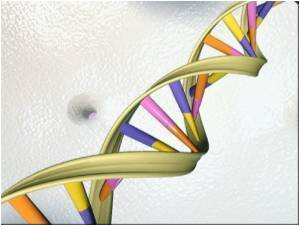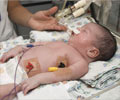A gene responsible for Adams-Oliver syndrome, a condition which can cause birth defects of the heart, limbs or blood vessels has been, for the first time, discovered by the scientists

Using modern DNA technology to examine the patterns and variation of genes within two affected AOS families, the team detected mutations in the ARHGAP31 gene. This gene regulates two proteins in the body with important roles in cell division, growth, and movement. Mutations in the gene result in an imbalance in the regulation of these proteins, most likely leading to a disruption of the signalling proteins that are critical for normal limb formation.
Professor Richard Trembath, Head of King's College London's Division of Genetics and Molecular Medicine and Medicine Director of the NIHR BRC, said, "Birth defects of the heart, limbs and blood vessels can cause distress for children and their families, and tragically can sometimes even be fatal."
"Through this study we have uncovered the first inherited factor associated with Adams-Oliver Syndrome, which gives us greater understanding of how associated birth defects develop. Understanding the genetic causes of rare diseases in this way not only helps us to understand the condition better, but it gives us a unique insight into the role of specific genes in human development on a broader scale," added Trembath.
The study has been published in The American Journal of Human Genetics.
Source-ANI














